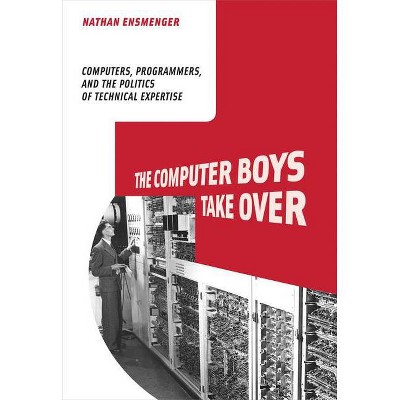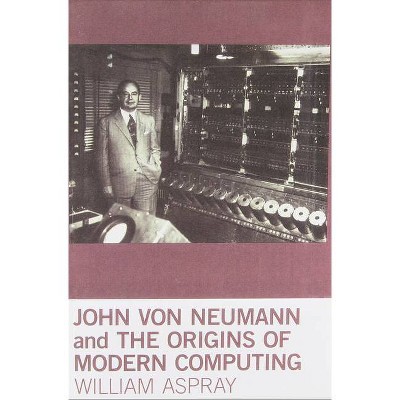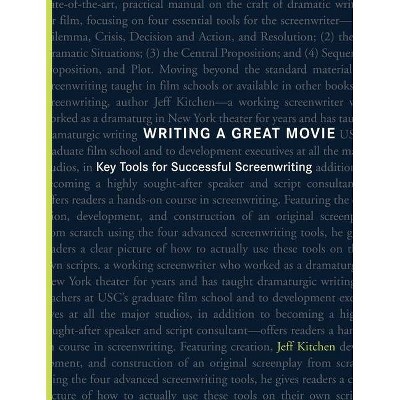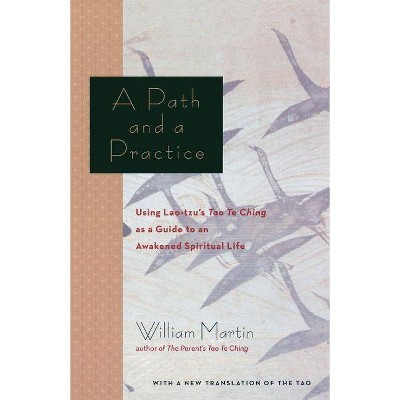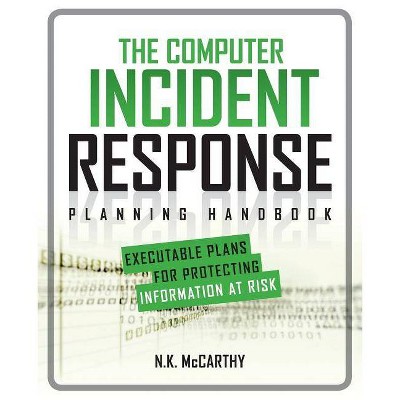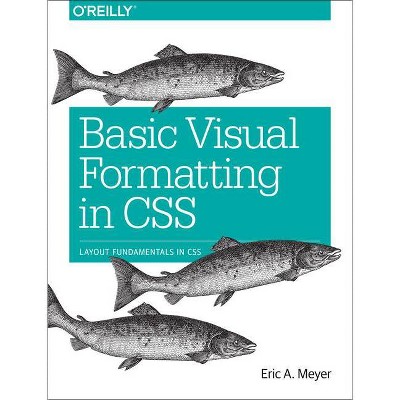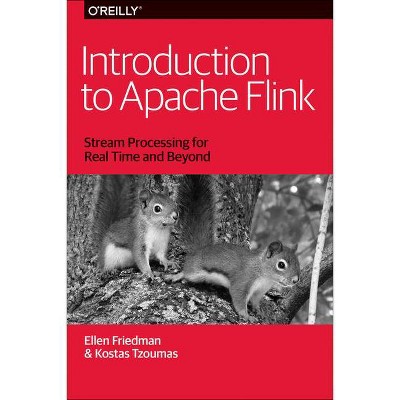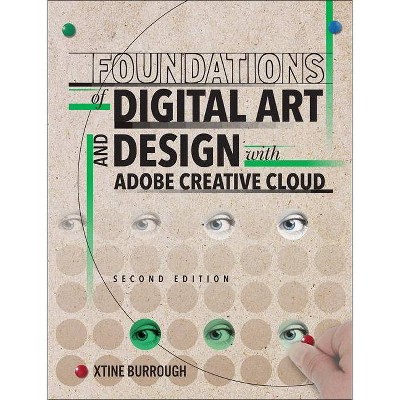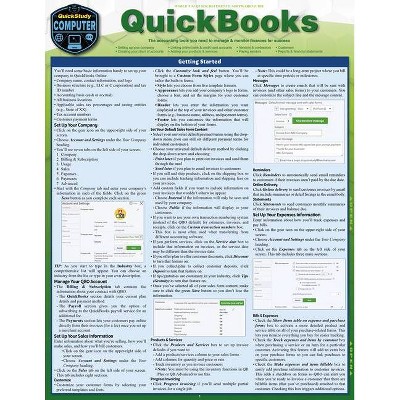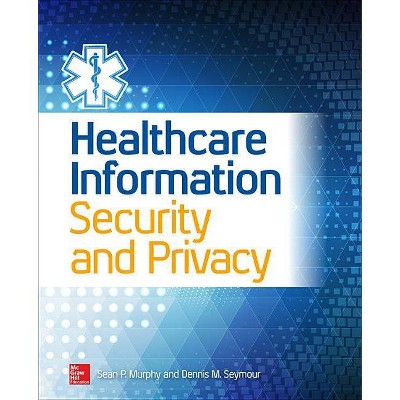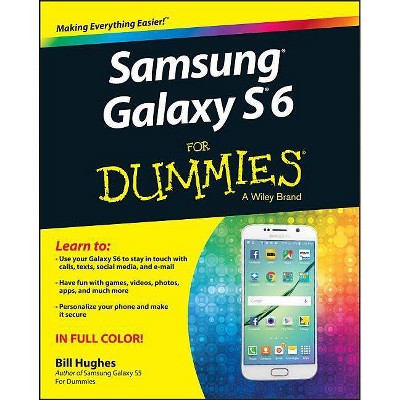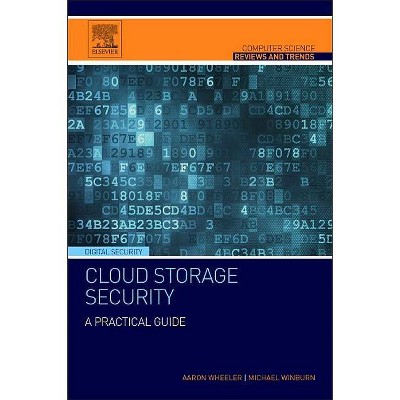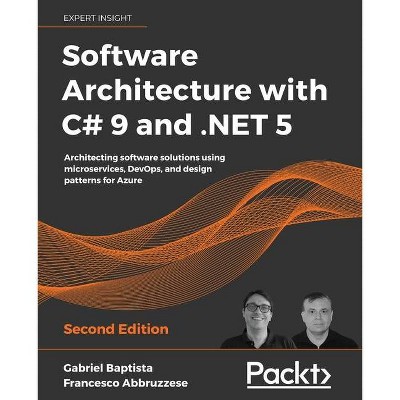Computer - 3rd Edition by Martin Campbell-Kelly & William Aspray & Nathan Ensmenger & Jeffrey R Yost (Paperback)
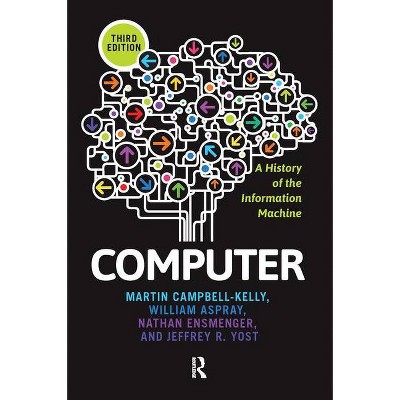
Similar Products
Products of same category from the store
AllProduct info
<p/><br></br><p><b> About the Book </b></p></br></br><p><em>Computer: A History of the Information Machine</em> traces the history of the computer and shows how business and government were the first to explore its unlimited, information-processing potential. Old-fashioned entrepreneurship combined with scientific know-how inspired now famous computer engineers to create the technology that became IBM.</p><p/><br></br><p><b> Book Synopsis </b></p></br></br><p><em>Computer: A History of the Information Machine</em> traces the history of the computer and shows how business and government were the first to explore its unlimited, information-processing potential. Old-fashioned entrepreneurship combined with scientific know-how inspired now famous computer engineers to create the technology that became IBM. Wartime needs drove the giant ENIAC, the first fully electronic computer. Later, the PC enabled modes of computing that liberated people from room-sized, mainframe computers.</p><p>This third edition provides updated analysis on software and computer networking, including new material on the programming profession, social networking, and mobile computing. It expands its focus on the IT industry with fresh discussion on the rise of Google and Facebook as well as how powerful applications are changing the way we work, consume, learn, and socialize. <em>Computer</em> is an insightful look at the pace of technological advancement and the seamless way computers are integrated into the modern world. Through comprehensive history and accessible writing, <em>Computer</em> is perfect for courses on computer history, technology history, and information and society, as well as a range of courses in the fields of computer science, communications, sociology, and management.</p><p/><br></br><p><b> From the Back Cover </b></p></br></br>"A welcome update to the classic text on the history of the computersure to extend its relevance to a new generation of students and scholars."<BR> David Mindell, MIT, author of "Digital Apollo: Human and Machine in Spaceflight" <BR>"This authoritative yet accessible history of computing improves with each edition. This latest version provides enhanced coverage of recent developments such as the Internet, while sharpening and deepening its treatment of earlier events. A balanced, reliable account that holds interest for specialists and provides a ready entry into the topic for students, professionals, and general readers."<BR> Steven W. Usselman, Georgia Institute of Technology <BR>"Computer: A History of the Information Machine" traces the history of the computer and shows how business and government were the first to explore its unlimited, information-processing potential. Old-fashioned entrepreneurship combined with scientific know-how inspired now famous computer engineers to create the technology that became IBM. Wartime needs drove the giant ENIAC, the first fully electronic computer. Later, the PC enabled modes of computing that liberated people from room-sized, mainframe computers. <BR>This third edition provides updated analysis on software and computer networking, including new material on the programming profession, social networking, and mobile computing. It expands its focus on the IT industry with fresh discussion on the rise of Google and Facebook as well as how powerful applications are changing the way we work, consume, learn, and socialize. "Computer" is an insightful look at the pace of technological advancement and the seamless way computers are integrated into the modern world. Through comprehensive history and accessible writing, "Computer" is perfect for courses on computer history, technology history, and information and society, as well as a range of courses in the fields of computer science, communications, sociology, and management. <BR>Martin Campbell-Kelly is emeritus professor of computer science at University of Warwick. <BR>William Aspray is Bill and Lewis Suit Professor of Information Technologies at University of Texas at Austin. <BR>Nathan Ensmenger is associate professor in the School of Informatics and Computing at Indiana University Bloomington. <BR>Jeffrey R. Yost is associate director of the Charles Babbage Institute and faculty member in the History of Science, Technology, and Medicine at the University of Minnesota."<p/><br></br><p><b> Review Quotes </b></p></br></br><br>"I strongly recommend to you the third edition of <i>Computer</i>; it is simultaneously a thorough, accurate, and highly readable history of the evolution of the computer and its impact on all aspects of our society. I am an old guy, having written my first computer program over 50 years ago, and I have personally known many of the people mentioned in the book so I can attest to the accuracy of the events described."<br> --<b>Bill Wulf, University of Virginia</b> <p/><b>Praise for Prior Editions: </b> <p/> "Terrific! This is the best general history of computing yet written, by two of the field's most prominent historians. <i>Computer</i> is comprehensive, engaging, and a pleasure to read. Aspray and Campbell-Kelley paint the big picture of the information revolution that is affecting all of our lives."<br> --<b>David A. Mindell, Massachusetts Institute of Technology, and author of <i>Between Human and Machine: Feedback, Control, and Computing Before Cybernetics</i></b> <p/><br><br>"This book is a splendid account of the history of computing machines. From Jacquard's punch card loom to today's Dick Tracy-like Internet connectors, the book provides a wealth of fascinating historical and technological information, especially for first-time readers. Highly recommended." <b>--<i>Choice</i></b> <p/> "A welcome update to the classic text on the history of the computer--sure to extend its relevance to a new generation of students and scholars."<br> --<b>David Mindell, MIT, author of <i>Digital Apollo: Human and Machine in Spaceflight</i></b> <p/> "This authoritative yet accessible history of computing improves with each edition. This latest version provides enhanced coverage of recent developments such as the Internet, while sharpening and deepening its treatment of earlier events. A balanced, reliable account that holds interest for specialists and provides a ready entry into the topic for students, professionals, and general readers."<br> --<b>Steven W. Usselman, Georgia Institute of Technology</b> <p/><br><br>This book is a splendid account of the history of computing machines. From Jacquard's punch card loom to today's Dick Tracy-like Internet connectors, the book provides a wealth of fascinating historical and technological information, especially for first-time readers. Highly recommended. <b><i>Choice</i></b> <br> "A welcome update to the classic text on the history of the computersure to extend its relevance to a new generation of students and scholars."<br> <b>David Mindell, MIT, author of <i>Digital Apollo: Human and Machine in Spaceflight</i></b> <br> "This authoritative yet accessible history of computing improves with each edition. This latest version provides enhanced coverage of recent developments such as the Internet, while sharpening and deepening its treatment of earlier events. A balanced, reliable account that holds interest for specialists and provides a ready entry into the topic for students, professionals, and general readers."<br> <b>Steven W. Usselman, Georgia Institute of Technology</b> <br>"<br><br>"A welcome update to the classic text on the history of the computer--sure to extend its relevance to a new generation of students and scholars."<BR>--David Mindell, MIT, author of "Digital Apollo: Human and Machine in Spaceflight" <BR>"This authoritative yet accessible history of computing improves with each edition. This latest version provides enhanced coverage of recent developments such as the Internet, while sharpening and deepening its treatment of earlier events. A balanced, reliable account that holds interest for specialists and provides a ready entry into the topic for students, professionals, and general readers."<BR>--Steven W. Usselman, Georgia Institute of Technology <BR>"I strongly recommend to you the third edition of "Computer"; it is simultaneously a thorough, accurate, and highly readable history of the evolution of the computer and its impact on all aspects of our society. I am an old guy, having written my first computer program over 50 years ago, and I have personally known many of the people mentioned in the book so I can attest to the accuracy of the events described."<BR>--Bill Wulf, University of Virginia <BR>Praise for Prior Editions: <BR>"Terrific! This is the best general history of computing yet written, by two of the field's most prominent historians. "Computer" is comprehensive, engaging, and a pleasure to read. Aspray and Campbell-Kelley paint the big picture of the information revolution that is affecting all of our lives."<BR>--David A. Mindell, Massachusetts Institute of Technology, and author of "Between Human and Machine: Feedback, Control, and Computing Before Cybernetics" <BR>"Starting back when computers were people, computer historians Campbell-Kelly and Asprey meticulously trace the forces and personalities that gave birth to the computer age. From Babbage's failed analytical engine to mechanical calculators, IBM's room-sized mainframes, minis, Microsoft, and the Internet, their in-depth narrative gives usr<br><br>Praise for Prior Editions: <BR><BR>Terrific! This is the best general history of computing yet written, by two of the field's most prominent historians. "Computer" is comprehensive, engaging, and a pleasure to read. Aspray and Campbell-Kelley paint the big picture of the information revolution that is affecting all of our lives.<BR>-- David A. Mindell, Massachusetts Institute of Technology, and author of "Between Human and Machine: Feedback, Control, and Computing Before Cybernetics"<BR><BR>Starting back when computers were people, computer historians Campbell-Kelly and Asprey meticulously trace the forces and personalities that gave birth to the computer age. From Babbage's failed analytical engine to mechanical calculators, IBM's room-sized mainframes, minis, Microsoft, and the Internet, their in-depth narrative gives us a peek inside the back rooms of early computer companies and into the lives of industry pioneers, both sung and unsung.<BR>-- Thomas M. Georges, Author of "Digital Soul"<br><p/><br></br><p><b> About the Author </b></p></br></br><b>Martin Campbell-Kelly</b> is emeritus professor of computer science at University of Warwick. <p/><b>William Aspray</b> is Bill and Lewis Suit Professor of Information Technologies at University of Texas at Austin. <p/><b>Nathan Ensmenger </b>is associate professor in the School of Informatics and Computing at Indiana University Bloomington. <p/><b>Jeffrey R. Yost</b> is associate director of the Charles Babbage Institute and faculty member in the History of Science, Technology, and Medicine at the University of Minnesota.<br>
Price History
Cheapest price in the interval: 52.95 on October 27, 2021
Most expensive price in the interval: 52.95 on November 6, 2021
Price Archive shows prices from various stores, lets you see history and find the cheapest. There is no actual sale on the website. For all support, inquiry and suggestion messages communication@pricearchive.us
